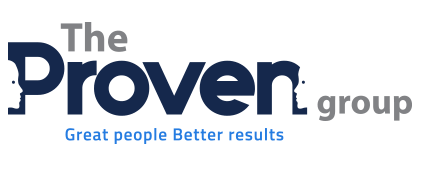Congratulations! You’ve made it to the next interview round!
But now is not the time to sit back and think the job is almost in the bag. While the second interview presents another chance to show that you’re perfect for the role, it also takes the need for preparation to a whole new level. With the stakes higher and the competition stiffer, it’s never been more important to ensure that you perform at your best and stand out from the crowd.
‘Skills’ first, then ‘fit’
In many cases, the first round of interviews is about ‘skills’ and used to establish the shortlist. The second interview is about ‘fit’ and designed to help the employer drill down and get to know you better, in order to decide if your beliefs and behaviours are in alignment with the company’s core values and culture.
This means that you will probably be asked ‘behavioural’ or ‘competency-based’ questions. These are usually more open-ended than the first-round questions and require you to provide detailed examples demonstrating how you responded in each situation.
Behavioural questions might include:
- When have you made a key decision without consulting your manager?
- Have you introduced continuous improvement in the workplace? What was it and what was the result?
- What has been the biggest challenge in your current/previous role and how did you handle it?
- How have you coped with changing processes and circumstances at work?
- Can you tell me about a time when you worked successfully as part of a team?
- What type of management style do you prefer?
- How have you resolved a conflict with a colleague or superior?
- When have you had to take the lead and inspire others? How did you do this?
How to prepare
As always, the key to good performance is good preparation. Here are a few tips to help you demonstrate that you’re a perfect fit:
- Prepare examples: Prepare at least five examples or stories using the SAO (Situation, Action, Outcome) approach. Very often, one example can be adapted and used to answer a range of questions.
- Look for opportunities to improve: Consider your performance in the first interview. Which answers or topics sparked interest and could be further developed in the second interview, and which could be improved?
- Do your homework: On this occasion, you may meet one or more of your potential co-workers in a panel interview situation. Before the interview, ask the company’s HR representative for the names of those who will be on the panel, and look them up on its website or on LinkedIn. Knowing a little about their areas of speciality and interests will help you to prepare examples, and questions, that will resonate with them.
- Know your facts and figures: Think about your salary expectations and decide on a realistic figure beforehand. In addition, make sure that you know what your current notice period is and have the dates of any planned holidays to hand.
- Ask questions: Prepare a list of relevant, intelligent questions to ask at the end of the interview. These could include what a typical day at work would look like, or who you would be working with, and will demonstrate a proactive approach to gathering all the information you need to make your decision.
- Follow up: If the hiring manager gives you a means of contacting them directly, be sure to follow up after the interview and thank them for the opportunity, reiterate your interest in the role and ask any additional questions.
The Proven Group
Interviews are purposefully difficult and most people find them stressful. If you need help to prepare, consider interview coaching. Practising with a professional will make you feel better prepared and more confident.
The Proven Group provides professional interview coaching as well as cover-letter and résumé-writing services in Melbourne, Ballarat and Geelong. In addition to these services, we offer LinkedIn profile-writing, advice on how to address key selection criteria, personality profiling and career counselling. Contact us today to discuss our services.




